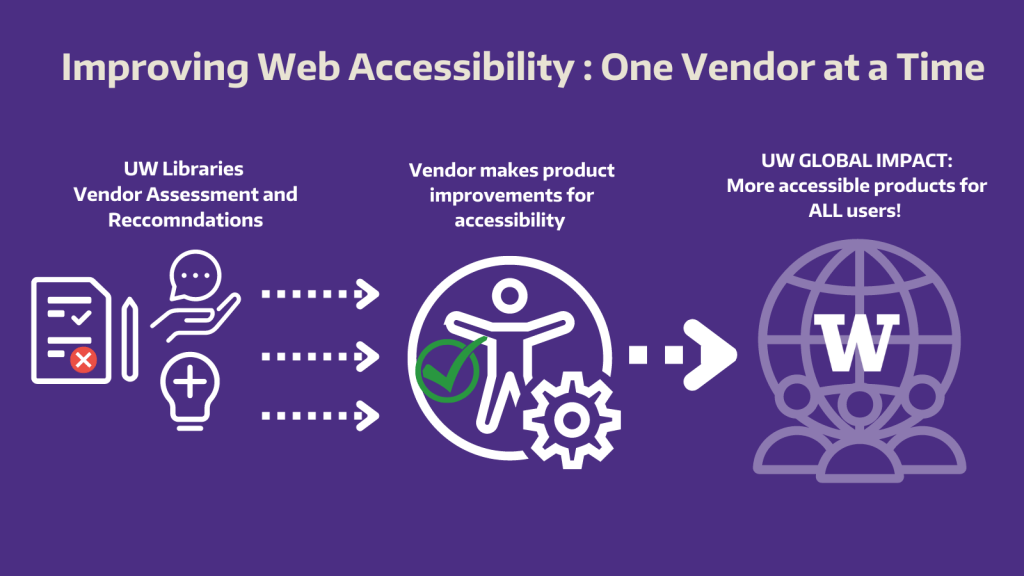November 21, 2022
Improving Web Accessibility, One Vendor at a Time
The Libraries have been assessing all of our third-party subscription products for accessibility as defined by the Web Content Accessibility Guidelines (WCAG). We report our findings to the vendor and in many cases, this process has resulted in system-wide updates to the product that improve accessibility for all users/clients.

While we do not have the resources to thoroughly test all of our subscriptions for accessibility, we do run a few basic tests to get a general idea of how accessible a specific product is. One such test is a keyboard navigation test: using only a keyboard, can someone perform a search, retrieve a search result, and interact with a search result? The reason to use this kind of test is because the functionality that allows for keyboard navigation is the same functionality used by many other kinds of assistive technology, such as screen readers. When a product fails our keyboard testing, we then perform additional tests and reach out to the vendor to discuss our findings.
Global Health, one of the resources that we tested, is a bibliographic database for public health information. While this database is created and available through CABI, it is also able to be navigated through the vendor Ebscohost. The UW Libraries had been using Global Health through the CABI interface. When we performed our accessibility assessment on the database, we found several issues that were large enough to prompt switching to the Ebscohost interface, which performed better in our tests. When we told CABI we were switching vendors, CABI responded by letting us know that our concerns about the accessibility of their platform and our decision to stop using their interface had led to them developing an accessibility timeline to improve their interface by later that year. While they had already known it was an area that could be improved, it was our actions that motivated them to change. We are encouraged by their response and appreciate their actions to make their platform more accessible for users.
IGI Global, another resource we tested, is an academic publisher of international scientific research. When the IGI Global ebook interface failed our tests, we reached out to them. They responded immediately, asking for a meeting with us and their development team. They were very interested to learn how to improve the accessibility of their site. Shortly after our meeting, they sent us a timeline of their planned improvements. They have also asked for follow up testing as they complete their timeline.This company is an excellent example of having a commitment to accessibility and taking action on that commitment.
We often find that vendors do not know about accessibility problems with their interfaces and are eager to repair the problems once identified. Two other companies, ABC-CLIO and PubFactory, were also able to swiftly make small but significant changes that immediately improved overall accessibility on their resources.
Our partnerships with vendors to improve the accessibility of their platforms and resources is one way that we are working toward our strategic goal of improving access to physical and digital resources through universal design and accessibility compliance. If you have any questions about this work or any potential areas of improvement you’ve noticed in library resources you’ve used, please contact us at uwlib-a11y@uw.edu.
###
